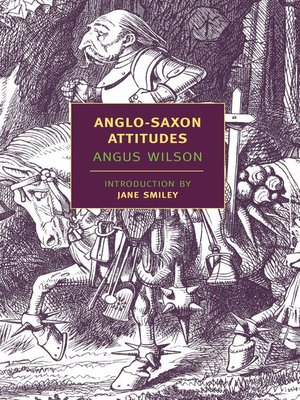
Sign up to save your library
With an OverDrive account, you can save your favorite libraries for at-a-glance information about availability. Find out more about OverDrive accounts.
Find this title in Libby, the library reading app by OverDrive.



Search for a digital library with this title
Title found at these libraries:
| Library Name | Distance |
|---|---|
| Loading... |
"One of the five greatest novels of the century." —Anthony Burgess
The hilarious classic novel of postwar, mid-century English academia, documenting a Middle Age historian’s middle-aged slump, and his efforts to finally set his life right
Gerald Middleton is a 60-year-old self-proclaimed failure. Worse than that, he’s "a failure with a conscience." As a young man, he was involved in an archaeological dig that turned up an obscene idol in the coffin of a 7th-century bishop and scandalized a generation. The discovery was in fact the most outrageous archaeological hoax of the century, and Gerald has long known who was responsible and why. But to reveal the truth is to risk destroying the world of cozy compromises that, personally as well as professionally, he has long made his own.
Scathingly satirical, with Dickensian humor and nerve, Anglo-Saxon Attitudes features a virtuosic plot and a vivid cast of characters that includes scheming academics and fading actresses, big businessmen toggling between mistresses and wives, media celebrities, hustlers, transvestites, blackmailers, toadies, and even one holy fool. Everyone, it seems, is either in cahoots or in the dark, even as comically intrepid Gerald Middleton struggles to maintain some dignity while digging up a history of lies.
One of England's first openly gay novelists, Angus Wilson was a dirty realist who relished the sleaze and scuffle of daily life. V.S. Pritchett called the novel "…brilliant and ambitious…In every generation one or two novelists revise the conventional picture of English character."
The hilarious classic novel of postwar, mid-century English academia, documenting a Middle Age historian’s middle-aged slump, and his efforts to finally set his life right
Gerald Middleton is a 60-year-old self-proclaimed failure. Worse than that, he’s "a failure with a conscience." As a young man, he was involved in an archaeological dig that turned up an obscene idol in the coffin of a 7th-century bishop and scandalized a generation. The discovery was in fact the most outrageous archaeological hoax of the century, and Gerald has long known who was responsible and why. But to reveal the truth is to risk destroying the world of cozy compromises that, personally as well as professionally, he has long made his own.
Scathingly satirical, with Dickensian humor and nerve, Anglo-Saxon Attitudes features a virtuosic plot and a vivid cast of characters that includes scheming academics and fading actresses, big businessmen toggling between mistresses and wives, media celebrities, hustlers, transvestites, blackmailers, toadies, and even one holy fool. Everyone, it seems, is either in cahoots or in the dark, even as comically intrepid Gerald Middleton struggles to maintain some dignity while digging up a history of lies.
One of England's first openly gay novelists, Angus Wilson was a dirty realist who relished the sleaze and scuffle of daily life. V.S. Pritchett called the novel "…brilliant and ambitious…In every generation one or two novelists revise the conventional picture of English character."







